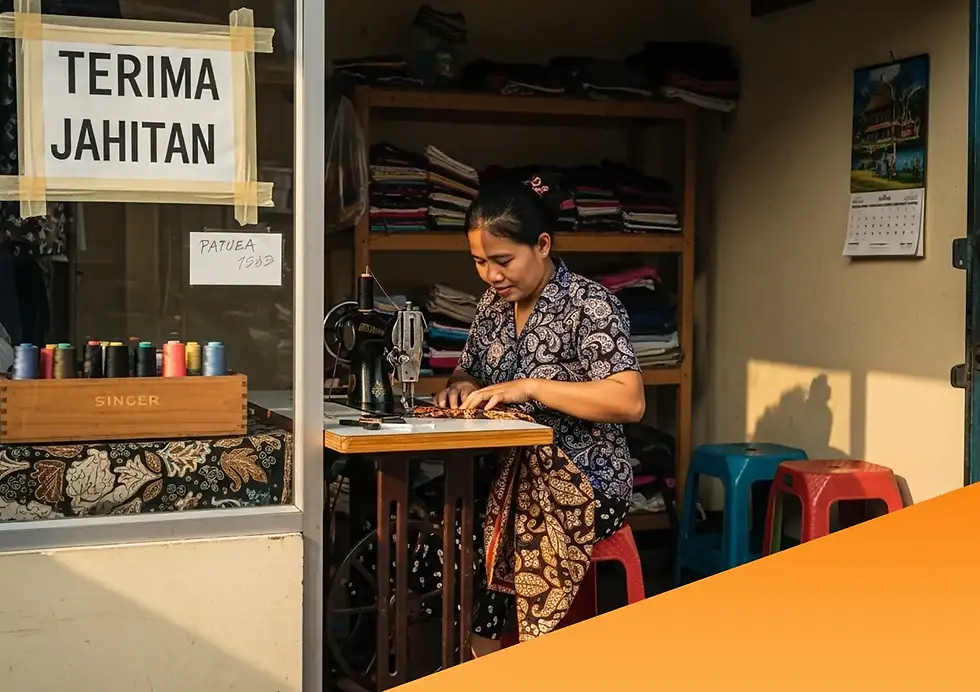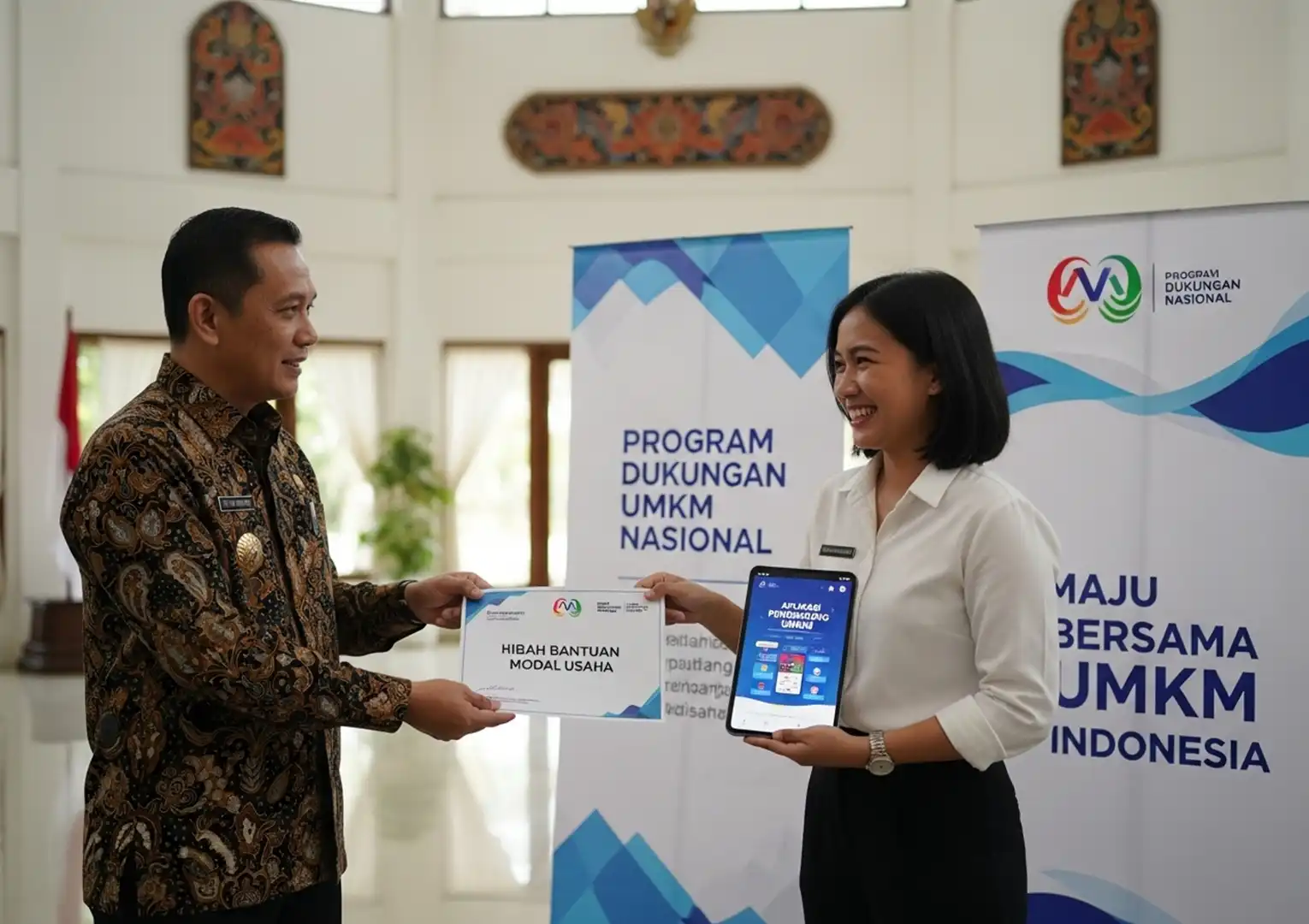5 Types of MSMEs and Their Potential Amid Crisis
August 18, 2025
Share This Article

Types of MSMEs Are Often Referred to as the Backbone of Indonesia’s Economy.When an economic crisis hits, MSMEs continue to stand strong and even become a lifeline for many people. But how resilient are MSMEs, really?
In Indonesia, MSMEs take many forms—from small neighborhood shops to digital-based creative businesses. Many entrepreneurs are starting to see MSMEs as a long-term solution to navigate economic turbulence.
This article will explain which types of MSMEs hold the most potential and why they remain a resilient business sector even in times of crisis. Let’s dive in!
Most Popular MSME Types in Indonesia
In general, MSMEs in Indonesia can be grouped into three main categories. These classifications are based on the amount of assets, revenue, and the number of employees they employ.
First, Micro Enterprises.These are usually run by individuals or family businesses. Their revenue is relatively small, typically only tens of millions of rupiah per year. Micro Enterprises often operate in areas such as home-based food businesses, small shops, or simple service providers.
Second, Small Enterprises. At this stage, businesses are more developed, with annual revenue reaching up to hundreds of millions of rupiah. Examples include motorcycle repair shops, small garment businesses, or coffee shops with multiple branches.
Third, Medium Enterprises.These businesses have a more structured and professional organization. They are often legally incorporated and can generate annual revenue in the billions of rupiah. Many Medium Enterprises operate in manufacturing, distribution, or mid-scale production.
Each type of MSME comes with its own challenges and potential. Micro Enterprises are more flexible and quick to adapt but are highly vulnerable to inflation. Small Enterprises are financially stronger but face intense competition from similar businesses.
Meanwhile, Medium Enterprises often struggle with the challenge of market expansion. Below are some examples of businesses in each category:
1. Home-Based Culinary Business
Home-based food businesses are always attractive to the local market. They require relatively small capital but offer high profit potential since food is a basic necessity. Menu innovation and taste are the key factors to keep attracting customers.
2. Handmade Fashion and Accessories
Handmade fashion products such as crochet bags or embroidered clothing have a loyal market. Besides being unique, handcrafted items often carry an exclusive value that makes them more appealing. The business potential is huge, especially when marketed through digital platforms.
3. Agriculture and Processed Products
Agriculture-based MSMEs offer great opportunities, particularly in processed products like chips or chili sauce. These products are in high demand because they are practical and enjoyable as snacks. Marketing can be done both online and offline.
4. Digital and Design Services
The field of digital services—such as graphic design, video editing, and visual content creation—is rapidly expanding. Many MSME players have successfully leveraged their design skills to earn additional income. The main investment lies in expertise rather than physical goods.
5. Herbal and Health Products
Growing public awareness of healthy living continues to drive opportunities in the herbal business. Traditional herbal drinks, herbal teas, and natural supplements all have a fairly stable market. With consistent quality, local herbal products also hold strong export potential.
Why Can MSMEs Survive During a Crisis?
Many business players often wonder why MSMEs are considered more resilient compared to large corporations. One of the key reasons lies in operational flexibility. MSMEs can quickly adapt to market changes without going through complicated bureaucratic processes.
Another factor is their lower operational costs. When revenue declines, MSME owners can immediately make cost adjustments. This allows the business to keep running even when income isn’t as high as usual.
Most importantly, MSMEs maintain close relationships with their customers. Small-scale businesses usually have more personal interactions, which becomes a strong foundation for customer loyalty—even during tough economic times.
However, MSMEs don’t just survive without strategy. Product diversification is a common approach. When one product doesn’t sell, business owners can offer other products that fit current market needs.
Digitalization is another smart move embraced by many MSMEs. By leveraging social media or online marketplaces, they can reach wider audiences, especially with the growing trend of online shopping.
Finally, collaboration among MSMEs is becoming more common. For instance, cooperation between small producers and distributors helps reduce operational costs. Such collaborations make MSMEs even stronger in facing economic challenges.
Government Support for MSMEs
The Indonesian government fully recognizes the vital role of MSMEs in the national economy. This is why the authorities provide a variety of support programs for MSME players, such as People’s Business Credit (KUR), digital training, and assistance with business legality registration.
Holding training programs regularly helps improve product quality and competitiveness, both in local and export markets. In addition, financial support from the government gives business owners more flexibility to grow and expand their enterprises.
With stronger support in place, MSMEs in Indonesia are expected to level up—from small-scale businesses to gradually becoming medium or even large enterprises—thereby strengthening the country’s overall economy.
MSME Businesses Run More Optimally with a Digital POS App!
MSMEs in Indonesia come in many forms, from micro and small to medium-scale enterprises. These businesses are often considered more resilient because they are flexible, operate with lower costs, and maintain strong customer relationships. With added government support, the opportunities for MSMEs not only to survive but also to thrive during crises are even greater.
If you’re planning to start or grow your business, now is the perfect time. Make sure to take advantage of Labamu’s digital POS application, equipped with powerful features that ensure smoother and more efficient business operations.
That’s not all—you can also join Labamu Hub to discover new business opportunities and grow together with fellow entrepreneurs across Indonesia. Take the first step today for a brighter future!














